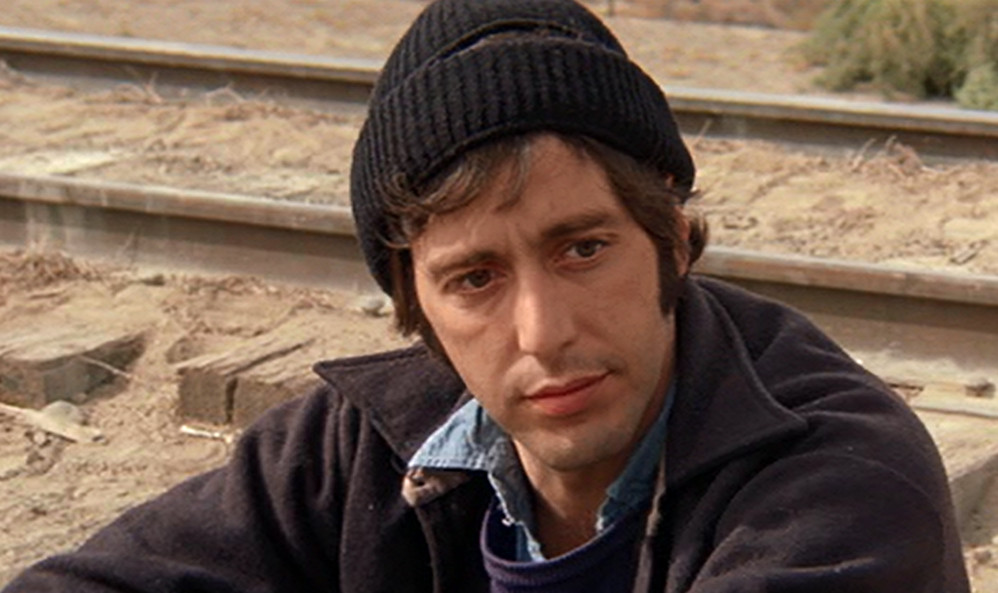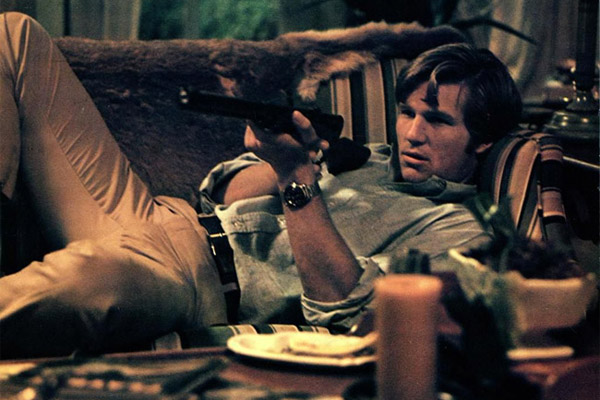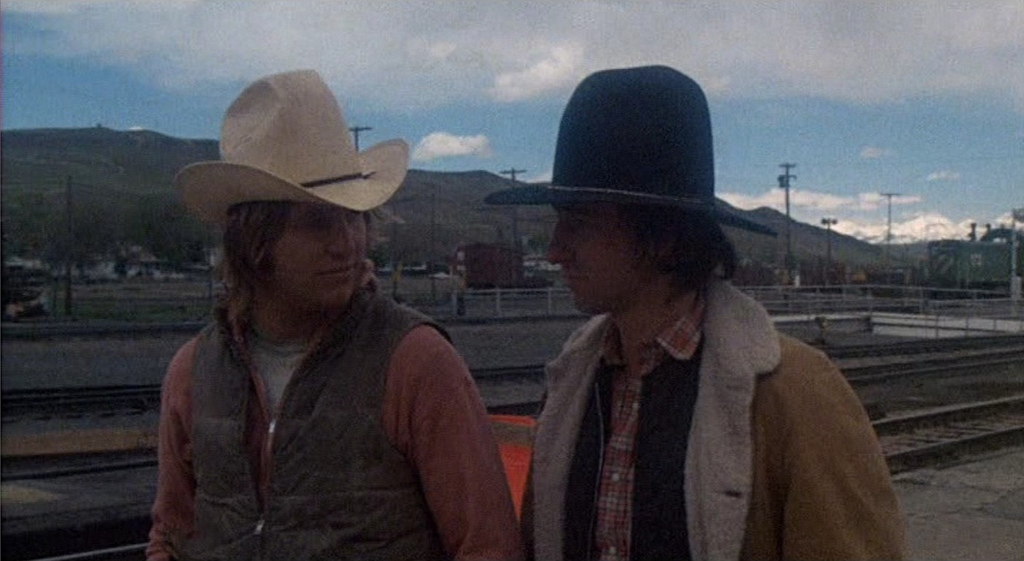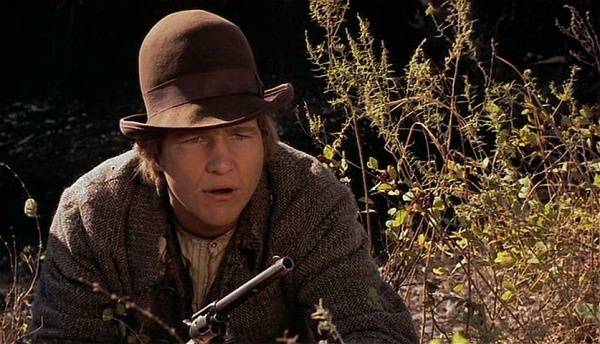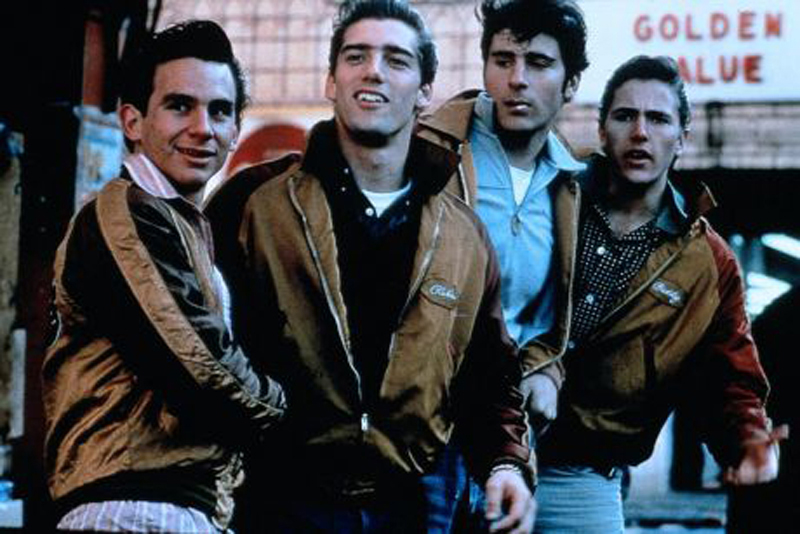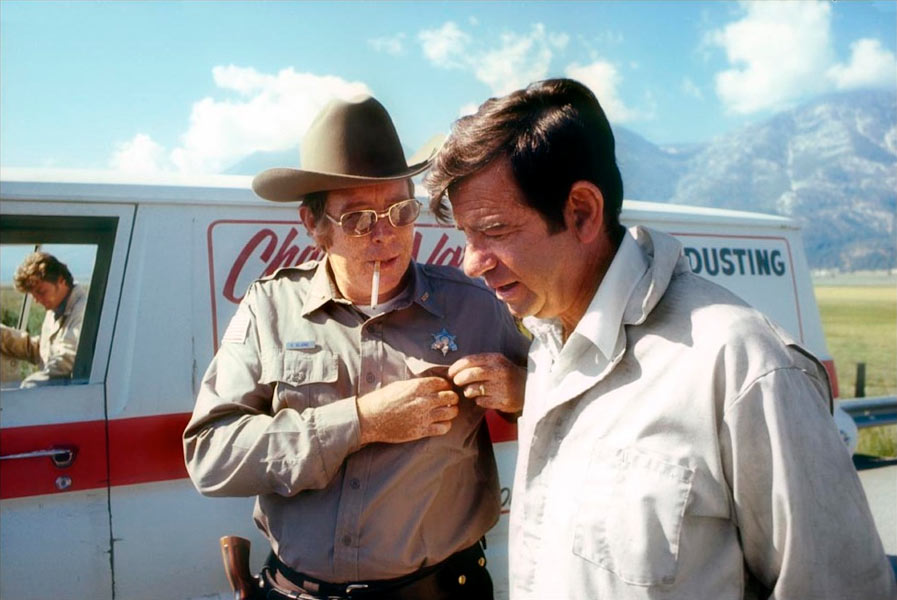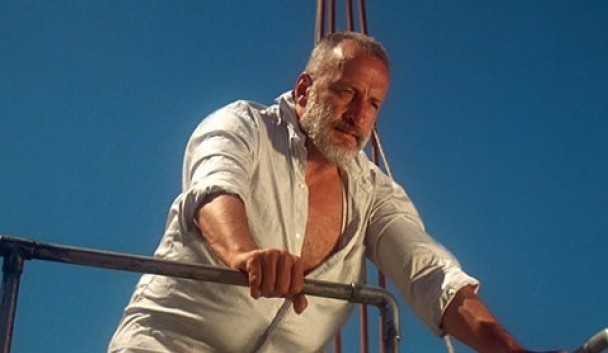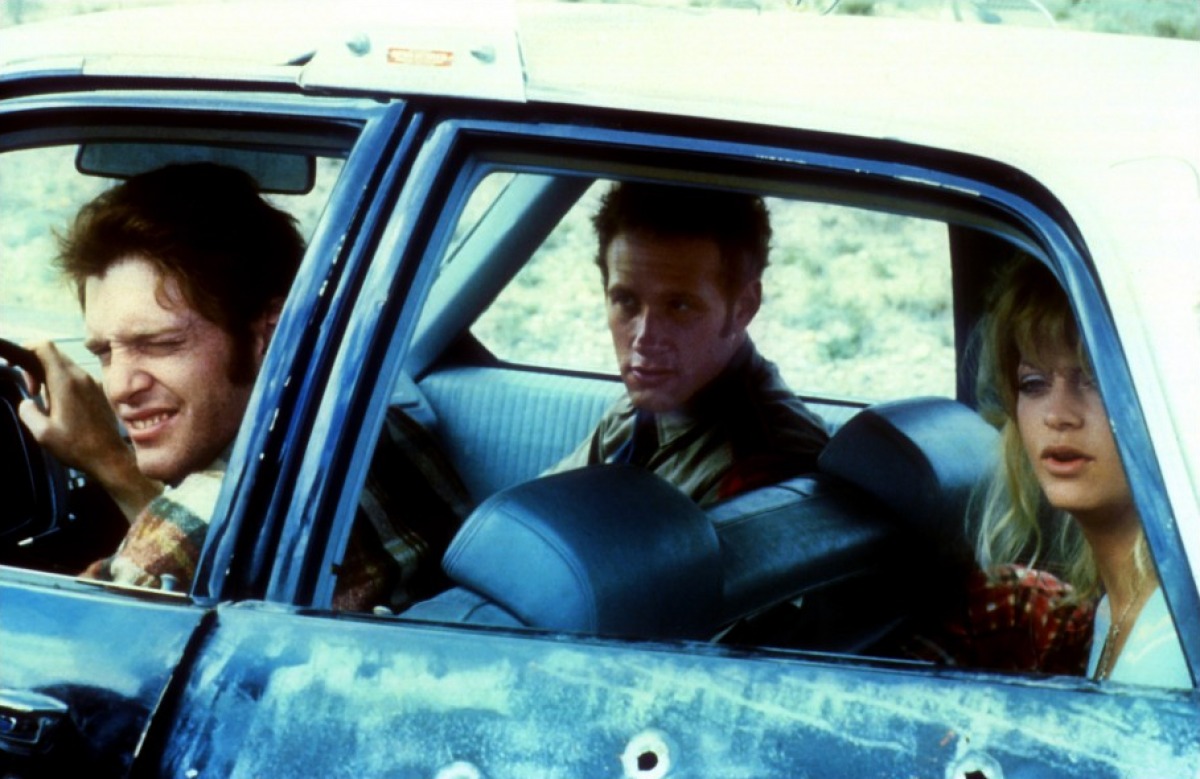Many film scholars have commented on how the decade of the 1970s has shaped up as a golden age of American film making. A lot of things did seem come into alignment during that period in order to produce a long list of important films. The list of factors can be speculated about, but among them would be social, political and cultural upheavals, the demise of the studio system, and the emergence of an educated generation of filmmakers who understood the history of cinema, both foreign and domestic.
It all percolated together to produce many films destined to become classics. In an embarrassment of riches, the bar of the American cinema would be raised to new heights. The decade would produce so many good films that for one reason or another some of them got lost in the shuffle. Here is a list of some films from that decade that deserve a second look and a higher place in the pantheon of 1970s film history.
16. Stay Hungry (1976)
Bob Rafelson‘s Stay Hungry finds its way to this list by way of being overshadowed by his other 1970s hits, Five Easy Pieces and The King of Marvin Gardens. Not as polished as these films, Stay Hungry makes up for it with raucous action, good performances all around and enthusiasm for its unlikely subject matter, body building.
The film was taken from the irreverent and quirky novel of the same name by Charles Gaines, who also scripted the movie. Gaines, a Renaissance man, would later in life invent the sport of paintball and pen a wonderful, much-revered book on fly fishing.
Rafelson was just having fun with this movie, which he described as “exhilarating” to work on. The director’s knack for presenting interesting, off-center, rough-edged characters and their relationships with the conventional world is in evidence. The film takes place in Birmingham, Alabama and concerns a body building gym in danger of being eliminated for a real estate project.
Jeff Bridges and Sally Fields turn in likable performances as lovers from both ends of the social-economic spectrum of the then “New South.” Great character performances by R. G. Armstrong, Scatman Crothers and Woodrow Parfrey add to the southern grittiness of the proceedings. And let’s not forget Arnold Schwarzenegger seen here in all his Mr. Olympus splendor.
It is his least self-conscious performance on screen. In his review, Vincent Canby describes Arnold’s character as a “nice, honorable young man who appears to be trapped inside a huge, grotesquely muscled body that has no relation to the conventional head on top of it.”
15. Rancho Deluxe (1975)
Frank Perry probably has three or four films that could belong on any list of forgotten classics of the 1970s. Director Perry, along with his wife Eleanor as screenwriter, practically represented the entire American independent cinema. Perry was responsible for some interesting films, starting with the Academy-Award-winning David and Lisa in 1962.
His main strength as a filmmaker proved to be his excellent taste in choosing literary works on which to base his films. He was masterful at bringing someone else’s artistic expression to the film medium. Ultimately, it would tarnish his reputation as a director because his films had no stamp of personal vision. This criticism aside, there is a good list of engaging and entertaining films that have his name on them.
Rancho Deluxe is no exception. This time the artistic expression is that of young literary bad boy Tom McGuane. McGuane was barely out of college when his first novels were published. Already he was being hailed as the new “Hemingway” in literary circles. McGuane’s wonderful Rancho Deluxe script has all the quirky characters, snappy insightful dialogue and off-the-wall adventures that were hallmarks of his early novels.
Jeff Bridges and Sam Wasterston (as a philosophical Native American) are two anarchic cattle rustlers plying their trade in modern day Livingston, Montana. They plunder the ranch of a bored east coast businessman turned cattle baron until they are caught after a clever battle of wits with a wily stock detective.
Elisabeth Ashley, Slim Pickens and Harry Dean Stanton fill out the cast of odd ball characters who populate this corner of Montana. Stunningly photographed in the Rockies’ “Big Sky” country by William Fraker, it is a perfect example of what an exceptional cinematographer can bring to a film.
14. Bad Company (1972)
Bad Company is a revisionist Western that perfectly mirrors the political and social upheavals of the late ‘60s and early ‘70s. Myths were being debunked and old notions challenged. In time, that turbulent and rebel rousing era passed into history and with it this worthwhile film.
Directed by Robert Benton from an excellent script by both he and writing partner David Newman, Bad Company takes the advice of Horatio Alger and turns it on its ear. A group of young men go west, but only to escape conscription into the meat grinder that was the American Civil War.
In a series of episodic adventures, the boys find that the golden American West is not the land of unlimited opportunity painted by the myth makers. Jeff Bridges heads a cast of young actors who finds that life on the frontier is hardly romantic. It is instead a mean, nasty and unforgiving world populated by men with the same traits. They find that the only way to survive is to become petty, backstabbing and remorseless criminals themselves.
Benton and Newman’s script is awash with the kind of naturalistic expressive dialogue and multidimensional characters they had become famous for since their groundbreaking work on Bonnie and Clyde. The script deftly points out that establishment is always righteously ready to extract justice from these lost boys, although society created the circumstances that forced them into being outlaws.
Benton’s direction is smooth and he knows how to bring out the best of his great script. Jeff Bridges outshines the other players here, as usual. The great Gordon Willis was behind the camera on this film and his muted photography depicts the West as it probably was: dusty, dirty and tattered.
13. The Wanderers (1979)
Phillip Kaufman is another director who could have two or three films on this list by producing some notable, overlooked work in the ‘70s. Kaufman’s The Wanderers is a memorable nod to a nostalgic coming of age story.
The film takes us back to Bronx of 1963 just as the naive, unsophisticated ‘50s are giving way to the new era that is coming. This film is adapted from Richard Price’s tale of teen life as told though the eyes of a teenage, Italian-American street gang called the Wanders and their interaction with girlfriends, parents and other rival neighborhood gangs. These are not the mean streets of other gang movies. There are no drive-bys, guns, drugs, or turf to be protected.
Kaufman’s The Wanders settle differences mostly with their fists. The film pays special attention to the fact that it is a period piece. Colorful satin gang jackets and hoop skirts to its time and place.
The soundtrack plays an important part in setting up the period. It is lovingly laced with the spinning wax 45 doo-wop tunes that define this simpler time. In the streets, the big American boats passing as automobiles cruse a Bronx where urban decay has not yet set in. It is a youth world where the influence of Elvis is in its last flowering and the Beatles have not yet spread their wings.
The young cast is unknown, with a few exceptions then, as well as today. It does not stop them from doing a good job of telling the story. Kaufman’s style is not groundbreaking, but the films keeps us interested as the teenagers naively live out what will become, looking back, the happiest times of their lives.
The change for them and America has already announced itself. In one scene the Kennedy assassination plays out on display TVs in store widows as people cry in the streets. There are references to the Vietnam War and a new counter culture which lies just over the horizon.
The Wanders makes an entertaining statement about change and the bittersweet passing of one time in our lives, even as another begins to shape our futures.
12. Smile (1975)
Director Michael Ritchie and actor Robert Redford envisioned Smile as part of a trilogy which would examine the theme of competition and winning in American life. Along with Down Hill Racer and The Candidate, this little film gives a satirical and wry look at the American drive for success and to what length people go to win.
The first two films starred Redford and were handled as fairly straightforward dramas. Smile takes a different stance. Ritchie turns Smile into a no-holds-barred satire lampooning beauty pageants, small town boosterism, politics, fraternal organizations and anything else that gets in front of his camera. Bruce Dern plays the small town promoter trying to turn hosting the “Miss Young America Pageant” into a big deal for his town.
The young contestants come to the pageant with different attitudes and goals. The film follows them as they vie for the big prize. The usual lame beauty pageant clichés provide Ritchie with plenty of material to have fun with. Meanwhile, the adult role models in the film do a better job of acting like children than adults as they go about handling the stress of the pageant.
Smile was probably the best of the trilogy. With these first three films, director Ritchie seemed to be destined for an impressive and important Hollywood career. It was not to be.
Most of his latter films never seemed to measure up to these first three fine examples of 1970s cinema.
11. Charley Varrick (1973)
Director Don Siegel was at his best making B-movies. In the ‘70s when he found himself working at big studios with big movie stars and budgets he wisely stayed true to his B-movie sensibilities honed back in the days of his classics like Baby Face Nelson and Invasion of the Body Snatchers. Charley Varick was one of those films.
Siegel spins out this movie with the energetic pace and style of a cheap paperback novel. Colorful underworld characters, ambiguous morality, clever plot twists, sex, and violence all come into play. Add an inventive and exciting climax and you have one of Siegel’s most satisfying films.
The plot centers around what is supposed to be a small time back robbery by an aging crop duster played by Walter Matthau. The trailer-dwelling Matthau, along with wife and a fellow trailer park denizen, run into trouble with the botched robbery. It turns bloody and they barely escape with the money, although Matthau’s wife is killed.
Despite losing his wife, Charley Varrick’s troubles are just beginning. The small desert town bank proves to be an organized crime money laundering way station. Instead of the few thousand dollars they were expecting, their haul is more like $700,000. Charley’s dim accomplices are thrilled, not realizing that now they have the outfit after them along with the law.
Joe Don Baker turns in a nice performance as a seemingly even tempered, though ruthless pipe smoking mafia operative who relentlessly goes after the pair.
10. Islands In The Stream (1977)
Ernest Hemingway was famously unhappy with the way Hollywood adapted his novels to the screen. Too bad he never got a chance to see Franklin J. Schaffner’s film version of his posthumously published, unfinished novel Islands in the Stream.
George C. Scott plays an autobiographical Hemingway-like character named Thomas Hudson in this sad examination of loss and redemption. Islands in the Stream is a wonderful film that never got the acclaim of Shaftner and Scott’s earlier collaboration, Patton.
Scott plays an artist who has isolated himself on Bimini in the Bahamas. He has abandoned his family, his fame and the world, becoming a recluse. The adaption splits the story of the novel into four segments, each covering a different time in the novel’s progression. The artist spends his days working and boozing with fellow castaways and cronies.
David Hemmings is excellent as a rummy ex-Brit, as is authentic veteran Latin character actor Gilbert Roland. Roland in particular is so well suited to his role that he looks as if he might have hung out with Hemingway at Joe’s Bar in real life. Jerry Goldsmith’s music is particularly effective in underscoring the mood and nuance of the film.
The Scott character’s isolation ends with the arrival of his three young sons and, later, World War Two, which is finding its way to his part of the world. His relationship with his sons depicts an awkwardness and love that Scott’s skill as an actor carries off with heartbreaking intensity.
The film is full of classic Hemingway scenes, such as an epic fishing battle between one of his young sons and a Marlin, and acts of self-sacrificing bravery in the face of difficult circumstances. Schaffner’s direction is restrained and does not let superfluous material get in the way of telling his and Hemingway’s story.
9. The Sugarland Express (1974)
If you don’t count the made for TV Duel, this was Steven Spielberg’s first theatrical film. Only a few Hollywood insiders had ever heard of this kid director when The Sugarland Express came out. Spielberg’s next film, Jaws, would change all that and in turn leave The Sugarland Express a mere footnote of a mega directorial career. That’s too bad. It deserves better.
Professional and flawless in its execution, the film is basically a road movie about a woman, played by Goldie Hawn, trying to retrieve her baby, who was taken from her by Texas Social Service authorities. Lou Jean breaks her husband Clovis, played by William Atherton, out of jail to help her and the two head for Sugarland, Texas.
Hawn is convincing as Texas trailer trash with spunk and determination, but things quickly spin out of control when they kidnap a Texas Highway patrolman. Everyone connected realizes that they are in way over their heads and that this will end very badly.
Spielberg’s skill at shameless manipulating of his audience is evident as he makes us really like these characters and fear for them as they get involved in a low speed police chase across Texas. The chase involves about 100 police cars and gives Spielberg a chance to show off his legendary ability to film and edit action sequences.
Veteran American character Ben Johnson plays what should be a redneck law enforcement honcho as a wise father figure who realizes that these dangerous criminals are in reality just dumb kids.
The film marks Spielberg’s first collaboration with both cameraman Vilmos Zsigmond and composer John Williams. Their talents, along with Spielberg’s, help elevate a fairly low budget road film into worthwhile cinema.
